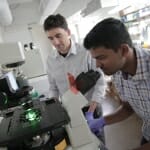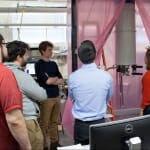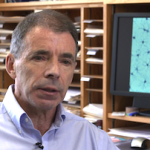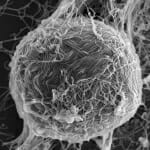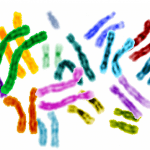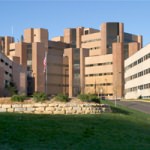Tag Research
Crystal-stacking process can produce new materials for high-tech devices
To grow layers of single-crystal oxides for electronic components requires neighboring layers to interlock like Lego blocks. A new method throws out that limitation, producing new capabilities for data storage, sensing, energy technologies, biomedical devices and many other applications. Read More
Warming oceans could cause Antarctic Ice Sheet collapse, sea level rise
A new study found that warming below the surface of the planet’s oceans is a significant contributor to ice sheet melt, particularly in the Antarctic, where a large portion of the ice sheet exists under the water. Read More
Enter your best science images in the 2020 Cool Science Image Contest
As students, staff and faculty sift and winnow they produce a continual stream of visual documentation of their discoveries. The 10th annual Cooll Science Image Contest is soliciting the best visuals from members of the UW–Madison community. Read More
Potential predation prevention: Remind cattle they are herd animals
An experiment will test the back-to-the-future principle that cattle will find safety by returning to their roots as herd animals, says graduate student Naomi Louchouarn, who began the experiment last spring. Read More
Discovery sheds new light on how cells move
“If we can understand the key factors causing cell migration, then we could perhaps develop new treatments to speed up wound healing,” says Jacob Notbohm, an assistant professor of engineering physics at the University of Wisconsin–Madison. Read More
First cohort of students dives into new physics-quantum computing master’s degree
UW–Madison’s inaugural MS in Physics – Quantum Computing, which addresses a workforce need as the first program of its kind in the U.S., will prime students to enter this rapidly growing field. Read More
Access to Medicare increases cancer detection, reduces cancer mortality rate
Access to Medicare significantly affects detection of certain cancers and life expectancy following cancer diagnosis, according to a new study from the UW School of Medicine and Public Health. Read More
Compassion training for parents may reduce their children’s stress
“It is critical to include parents of infants and very young children in this research because preventing stress-related difficulties in children is a more effective approach than intervening after problems develop.” Read More
Inflammation predicts response to anti-depression medication
Children and teens with bipolar depression responded better to the drug if they had increased markers of inflammation in their blood, a new UW–Madison study shows. Read More
Mindfulness video game changes areas of the brain associated with attention
The game was designed for middle schoolers and requires them to count their breaths by tapping a touch screen to advance through relaxing landscapes such as ancient Greek ruins and outer space. Read More
Mimicking enzymes, chemists produce large, useful carbon rings
The work may represent preliminary progress toward deciphering just how enzymes, honed by evolution, so efficiently produce natural compounds. Read More
Hard as a rock? Maybe not, say bacteria that help form soil
New UW–Madison research shows how bacteria can degrade solid bedrock, jump-starting a long process of alteration that creates the mineral portion of soil. Read More
Low genetic risk for ADHD may protect against negative life experiences
Adults with lower genetic risk for ADHD also reported, on average, higher IQs and educational attainments, shorter or no criminal records, lower body mass index (BMI), and lower rates of depression than adults with middle-to-high genetic risk for ADHD. Read More
Clinical trial for Ebola vaccine developed at UW–Madison underway in Japan
Fifteen healthy young men will receive two doses of the experimental vaccine. If the first group tolerates it, an additional group of up to 20 volunteers will receive a higher dose of the vaccine. Read More
New tool predicts three-dimensional organization of human chromosomes
The predictive tool is a boon for researchers studying how cells control the activity of genes, helping explain how cells achieve their key functions and how they go haywire, as happens in diseases such as cancer. Read More
Delirium linked to brain injury after severe surgery
The researchers were able to demonstrate that delirium is associated with injury to nervous tissue in the brain that could lead to loss of cognitive ability. Read More





